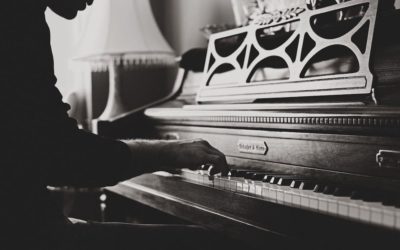What does it take to become a professional pianist?
Whether you are a curious beginner or an aspiring pianist, you might be wondering, what does it take to become a professional pianist?
It is a generally known fact that if you want to become a master of any craft or skill, it will take a lot of time, dedication, and hard work. But what are the specific attributes and characteristics of a person aiming to become a professional pianist?
Let’s find out!
Important factors in becoming a professional pianist
There are plenty of factors that can influence whether a person becomes a professional artist or not. Some are predetermined genetically, but most of them can be influenced by our choices. In the following few paragraphs, I will describe the six factors I consider to be the most important.
- Deliberate practice
- Talent
- Love for music
- Age
- Teacher
- Time availability
1. Deliberate practice
Most musicians would agree that practice and talent are considered to be the most important.
Without a doubt, talent can play an important role in our development, but most professionals would agree that practice is certainly much more crucial. There is a saying which describes this very well: “Hard work beats talent when talent fails to work hard.” In other words:
Practice > Talent
Even though I realized the importance of practice a long time ago, it’s been just recently that I’ve realized the vast difference between practice and deliberate practice.
While the regular practice of many musicians may include mindless repetitions, playing around with favorite chord progressions, riffs, or just messing around with random musical ideas, deliberate practice requires focused attention and is carried out with a specific goal in mind.
There’s nothing wrong with having fun with our instruments, as long as it doesn’t interfere with our goals. Therefore it is important to make a clear distinction between the “fun time” and the “practice time” and respect its boundaries.
As an example of effective workflow, I chose Jacob Collier’s video in which you can see his process of harmonizing a short musical idea from one of his fans (and yes, I know it’s not a practice session, but you get the point).
If you are not familiar with Jacob Collier, he is a grammy award-winning musician/singer/composer, who besides an incredible talent, also has an amazing work ethic.
If you are struggling in this area, do not despair. Being productive, focused and disciplined during practice is a learnable skill. Therefore acknowledge and identify your distractions or bad habits and start breaking them.
2. Talent
As a beginner, I was wondering, am I talented enough to become a good musician? As elusive as the term might be, there are certainly differences between different people and the amount of natural gifting they have. While being naturally gifted can help you learn faster, talent alone won’t get you anywhere if you are not using it.
I used to be amazed and frustrated at the same time watching 11 or 12-year-old prodigies such as Joey Alexander, Andreas Varady, or Bireli Lagrene with an incredible ability to perform at an early age.
So, is it over for us who don’t have as much talent? By observing many exceptional artists over the years, I found that talent works primarily as an accelerator in their musical development.
In the following video, you can watch seven-year-old Joey Alexander already playing Duke Ellington’s Caravan, after one year of his journey with the instrument.
What is even more astonishing is to watch him play four years later at 11 years of age, on his debut album “My Favorite Things.” With an incredible technique, time, sense of harmony, and the ability to improvise, Joey Alexander is performing with true musical maturity, accompanied by some of the finest jazz musicians of our time.
To come close to this level of musicianship it would take an averagely talented musician around 20 to 30 years of dedicated practice, while probably still not reaching the level of Joey’s playing.
As hard as it might be to hear this, it shouldn’t discourage you. The good news is that for many dedicated musicians similar level is attainable. Sure not everyone has the potential to reach 100 % of the virtuosity of musicians such as Joey, but many more people have the ability to come close to around 90 – 95 % of that level.
When I realized that even I could become an excellent musician if I have the discipline and patience to practice deliberately, my mind changed. Also, I started to realize that what makes me happy on my musical journey are those small steps in my musical growth. Once I have attained a certain level of musicianship, it becomes a “new normal.” So enjoy the new solo, cool chord progression, or that extra bit of knowledge of harmony you’ve just learned.
So, yes, many super talented or even prodigious musicians will reach their potential much earlier than an “average” musician. But if you’re not one of them, don’t be sad, instead, realize that you will have the benefit of experiencing the joy of growing for a longer period of time :).
3. Love
If I had to point out the most important aspect of learning piano or any instrument for that matter, it would be the love for the instrument. It may sound corny or cliché, but I truly don’t think it’s overstated. For most beginners, this won’t be a problem, since it is what brought them to the instrument in the first place. Unfortunately, as the months and years go by, the progress can become less apparent, or they might even reach a plateau for a while. Maybe their musical hopes and expectations are not being met, and suddenly they are losing the love and passion for the instrument. Learning how to overcome those difficult times is essential to keep you on the path of growth, but more importantly, to keep you engaged for a lifetime. There are many things we have to do in our lives, but playing the piano is not one of them. The main reason why we chose this instrument is that we were drawn to its beautiful sound in the first place. Time at the piano should always remain a moment of joy, fun, and excitement. When love will be there, we will also find the motivation, time, and focus on growing as musicians.
4. Age
It is a generally known fact, proven by science, that children learn faster than adults. Because of their rapidly developing brains and especially thanks to the process called exuberant synaptogenesis, which is a rapid formation of synapses between neurons in the nervous system, kids can learn new skills faster than adults. Regarding the optimal age, science is clear, the quicker you can get involved in music, the better. Many professional musicians of today but also iconic composers of the past, such as Mozart, started to play the piano as early as three years old. Rick Beato, musician, producer, and founder of the Nuryl (a brain training app) suggests that introducing kids to music even earlier, in their “Critical Window of Brain Development” (5 months prenatal to 2 years of age) can allow kids to develop a perfect pitch.
Since you are reading this article, your critical years are probably long gone :), but this should not discourage you from starting. Even though kids can learn faster, youth and adults can learn just fine. Besides fulfilling your dream of learning how to play the piano, the process of learning brings many benefits such as stress-relief, improvement of cognitive functions, creativity, discipline, patience, etc.
Becoming a concert pianist at 40?
Are you wondering whether it’s possible to become a professional concert pianist as an adult? While researching this topic, I haven’t found any instance where an adult managed to became a concert pianist. In the realm of music, it is considered very late if you start in the teenage years, although there are few examples of concert pianists that started at the age of 17 – 20, which is considered to be extremely late. While the statistics might not be in your favor, there is always an exception to the rule. Throughout history, we can find many people who accomplished things once thought impossible, so if you have the desire and willingness to become great, there is nothing stopping you.
5. Teacher
Having a good teacher is, without a doubt, important, as it can greatly influence how quickly you will grow musically and how far you can get. For a beginner world of piano and music can be overwhelming. Music theory, proper technique, articulation, rhythm, etc., there is simply too much to wrap your head around. A teacher can help you navigate through the learning process and answer many of the questions that you will have along the way. We’re all different and unique beings and personalities. A good teacher should also be your coach, recognizing your strengths and weaknesses, while also helping you to develop your own unique voice on the instrument. As a beginner, a good local teacher can meet your needs for many years to come. If you eventually decide to take the professional path, you will very likely need an elite teacher. Just as it is in professional sports, if you want to be among the best, you need to be trained by the best. Last but not least, an elite teacher with an active or prior career of performing can become a doorway to your future musical career, by introducing you to the people from the music industry.
6. Time availibility
No matter how talented we are, or how diligently we are willing to practice, the amount of time we dedicate to practice influences greatly, how quickly we will learn and grow as a pianist. Based on an Erricsons study of the role of deliberate practice in the acquisition of expert performance, most professionals practiced 3-5 hours a day on average. Since it is a considerable amount of time, it can be a limiting factor for many people where their current lifestyle, work obligations, family, etc. simply do not allow them to dedicate that much time. However, if you are in your teenage years, it is good to realize that now is the time to dedicate yourself to practice if you want to become a session or a concert pianist one day.
How long does it take to become a concert pianist?
Becoming a concert pianist requires true dedication, talent, and hard work. On average, it will require 15+ years, 3-5 hours a day of deliberate practice, studying under some of the best teachers in the industry. In my opinion, only those who truly love this art form can succeed as it requires a huge sacrifice. Someone once said, “the struggle is guaranteed, the success is not”. I find it to be very true. Making a living as a concert pianist isn’t just a matter of talent and hard work; it is an extremely competitive niche, so don’t beat yourself up if you don’t become one. As Kurt Rosenwinkel, a great contemporary jazz guitarist and composer, said to his students during one of his masterclasses, “if you are doing what you love, then you are already successful“. So enjoy the gift of music and don’t allow the chase of your dream to steal the joy music brings. In other words, don’t measure success with money or fame, but instead, be thankful for the gift of music and appreciate every moment. By keeping the right attitude, I believe that you will not only enjoy your journey the most but also maximize the chance to succeed!
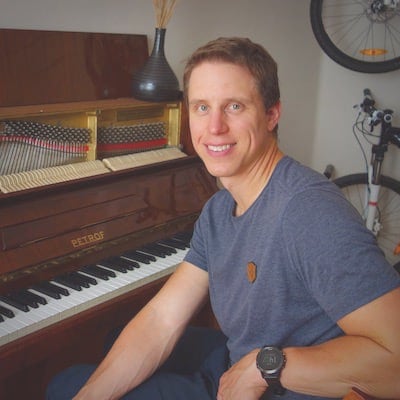
Welcome to my blog!
Other Articles
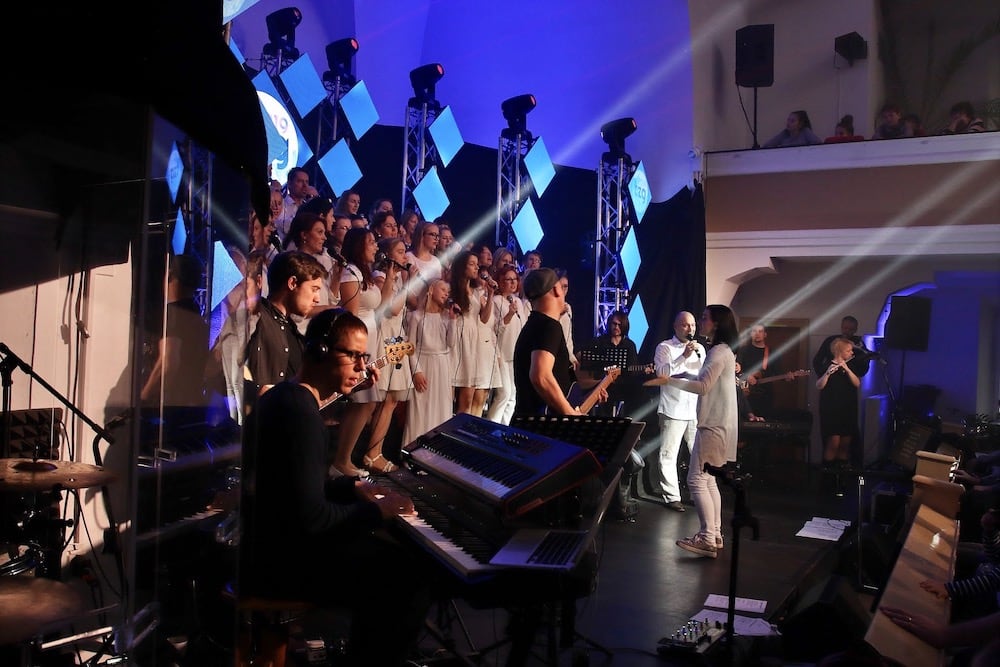
Worship piano: the ultimate guide for beginners
If you're anything like me, then you probably consider music to be one of the most amazing gifts from God. As a kid, I wasn't always excited about attending the Sunday service, but I remember that the time of praise and worship was my favorite part of the service, and...
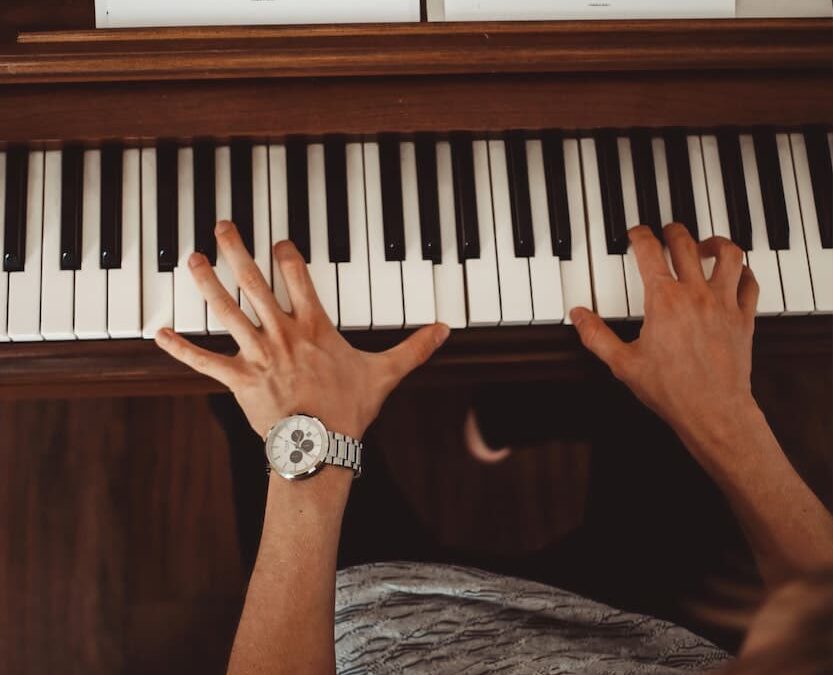
7 Ways to Make Your Chords More Interesting (tips for piano beginners)
Probably all of us face moments when we reach a plateau in our playing. Those are times when it's a good idea to seek out some inspiration to overcome the rut. If you're bored of playing the same chords over and over again, wondering how to make your chords sound more...
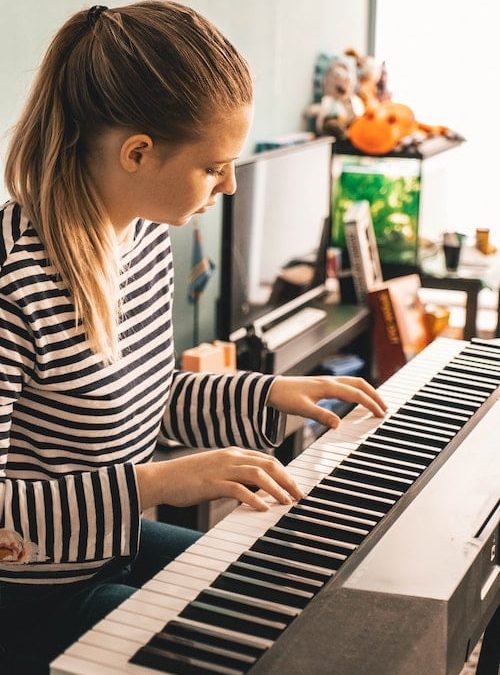
How to learn songs by ear
I was around 13 years old and had been thinking about quitting my piano endeavors because, for the past six years, I was almost exclusively playing classical music, which as a kid I didn't enjoy. As much as my classical training helped me develop my piano technique,...
Related Article
How Long Does It Take To Learn Piano?
The piano is a beautiful instrument and by many considered to be one of the easiest to learn. If you are a beginner, you might be wondering how long will it take you to learn your first song or to become decent or even a master of the piano. The universal and general...

